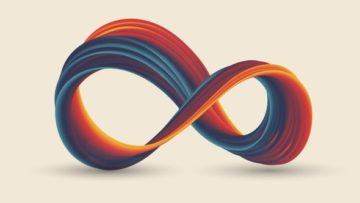Martin Goldstern and Jakob Kellner in Scientific American:
 Over the past millennia, humans have developed a remarkable notion of counting. Originally applied to a handful of objects, it was easily extended to vastly different orders of magnitude. Soon a mathematical framework emerged that could be used to describe huge quantities, such as the distance between galaxies or the number of elementary particles in the universe, as well as barely conceivable distances in the microcosm, between atoms or quarks.
Over the past millennia, humans have developed a remarkable notion of counting. Originally applied to a handful of objects, it was easily extended to vastly different orders of magnitude. Soon a mathematical framework emerged that could be used to describe huge quantities, such as the distance between galaxies or the number of elementary particles in the universe, as well as barely conceivable distances in the microcosm, between atoms or quarks.
We can even work with numbers that go beyond anything currently known to be relevant in describing the universe. For example, the number 1010100 (one followed by 10100 zeros, with 10100 representing one followed by 100 zeros) can be written down and used in all kinds of calculations. Writing this number in ordinary decimal notation, however, would require more elementary particles than are probably contained in the universe, even employing just one particle per digit. Physicists estimate that our cosmos contains fewer than 10100 particles.
More here.
